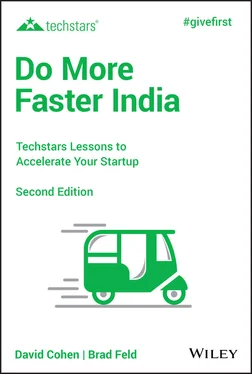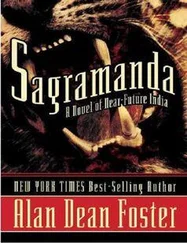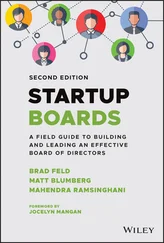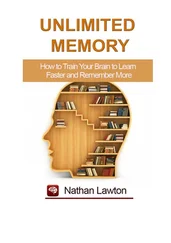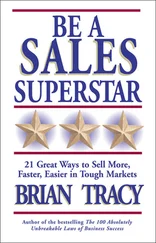Since the bank is not physically accessible, the farmer and weaver are not part of the formal financial sector, which means they don’t have credit history and they can’t get access to cheaper credit. They are forced to take usurious loans, further straining their ability to create financial stability. This situation presents a vicious cycle the family can’t easily overcome. Unfortunately, this scenario is a sad reality for hundreds of millions of people in India. The conventional solutions we have today for an urban context assume a certain level of access and knowledge that is far removed from the reality of over half a billion people.
Entrepreneurs need to develop solutions that work for less sophisticated and rural customers at a price and quality that is superior to the current solutions. We can’t expect a farmer to give up wages just to go to a bank; the bank needs to come to the farmer. We can’t expect a weaver to give up wages to receive medical care; the medical care provider needs to reach the weaver in her house. The solution for the farmer and the weaver needs to be cheaper, easier, resilient, and high quality, otherwise they will continue forgoing banking, medical care, and other needed services.
To create and sustain an entrepreneurial ecosystem requires a radical shift in the mindset of everyone in India, including consumers, governments, and entrepreneurs. The next wave of Indian entrepreneurs will need more than the desire to reach the majority of India consumers, as they will need the support of local and regional governments to help create entrepreneurial ecosystems. Most importantly, entrepreneurs will need the tools, mentorship, and communities that are the core of Techstars.
Techstars is the worldwide network that helps entrepreneurs succeed. Techstars accelerators have funded more than 1,700 companies in more than 30 locations in 13 countries. Techstars brings to India what we need: grassroots innovation and founders to think bold. We need world‐class mentorship to help shape the right mindset and bring their experience to help grow Indian entrepreneurial ecosystems.
Techstars provides the necessary ingredients for entrepreneurs to succeed in grassroots innovation: deep experience in helping entrepreneurs take an idea and develop it, and in pairing startup entrepreneurs with experienced mentors to help entrepreneurs avoid obstacles and overcome hurdles.
I am excited about the opportunity Techstars will have to participate in the next wave of innovation in India. Techstars will help usher in new innovation models and contribute to India’s growth as well as learn from it. Extending Techstars’ global network to India makes the commitment even stronger and India’s entrepreneurial ecosystem more robust.
Namaste India!
#givefirst
Mentor‐Backed Entrepreneurship in India
Sravish Sridhar
Sravish was the founder and CEO of Kinvey, a company that participated in the Techstars Boston 2011 accelerator. He is currently an active angel investor and mentor to numerous founders all over the world.
Founders who believe that they are building companies in massive markets with a potential to grow very quickly often aspire to become “venture‐backed startups.” Although venture capital could be an important tool to facilitate growth, I believe that it is far more impactful if founders successfully surround themselves with mentors who can help and support them in other ways. What startups really need is a mentor committed to helping them build a “mentor‐backed startup.”
I have had impactful mentors in my life from a young age. I was born and grew up in India. I moved to the United States as an 18‐year‐old to pursue an undergraduate education, and I’ve now lived my entire adult life in the United States and in Europe. In fact, I have lived more of my life outside India now. Even though my core values continue to be based on what I’ve learned from my family, my schooling, and various facets of Indian culture, my outlook and attitude in my professional life have become more western than Indian. I’m not saying that one is necessarily better than the other—they are just different.
These significant differences between India and the United States in professional interactions are even more pronounced in mentor relationships. I’ve found that some of the cultural patterns instilled in us while growing up in India can inhibit us from deriving the maximum value from our mentor relationships.
Mentors Are Humans, Not “Gods”
Most students in India have been taught the following phrases from the Upanishads :
Matrudevo bhava,
pitrudevo bhava,
acharyadevo bhava,
atithidevo bhava.
It literally means “Be one for whom the Mother is God, be one for whom the Father is God, be one for whom the Teacher is God, be one for whom the guest is God.”
From a very young age these lessons are ingrained in us and we are taught to treat our parents and teachers with the utmost God‐like respect. This learning is often extended from parents and teachers to any elder, resulting in a subservient relationship with anyone we believe is more experienced, more educated, or more successful than we are. We don’t usually question or challenge them; we do what they say and avoid any form of confrontation.
Respect is a strong foundational element for every mentor relationship, but respect in a mentor relationship should be mutual; it should never mean subservience. In the West, entrepreneurs tend to have an outspoken and irreverent attitude toward mentors. Entrepreneurs know they are trying to share the status quo with mentors and this belief often translates into an aggressive attitude. Even if a mentor has achieved significantly more than the entrepreneur—they’re famous, have a lot of money, are better educated, or differ on some other characteristic—these entrepreneurs will interact with that person as if they share the same status.
I believe this is a healthy approach to the mentor–founder relationship. In the West it’s expected that the founder will question, challenge, argue with, or disregard advice he or she receives from a mentor. It’s also expected that the mentor won’t mind being challenged, won’t take it personally, and won’t retaliate. In fact, many of the mentors I’ve worked with welcomed and even embraced challenges to their ideas.
So, Indian entrepreneurs should feel empowered to challenge, dismiss, ignore, or question the advice of a mentor who has achieved far more than they have. Similarly, Indian mentors should be comfortable with differences in opinion with their mentees. Debate is healthy, and ideally, it leads to better and more successful outcomes. The principle of mutual respect allows for differences of opinion.
Reach for the Stars, But Don’t Settle
When you’re first searching for mentors or mentees, don’t settle. By “settle” I mean, ask yourself what qualities or characteristics of a mentor relationship you need to make it perfect, to make it fruitful. Take the time to write those qualities down and then be thoughtful about whether those qualities will be met by a potential mentor or mentee. You may run into someone who is building a hot startup with exciting potential, but they may not be the best mentee for you. Similarly, just because someone is rich or a successful CEO, or is very well educated, they may not be the best mentor for you, either. Refer back to your list of qualities and characteristics that will really help you and filter every person through those. If they meet most of your criteria, they might be a great mentor or mentee.
My advice is to choose wisely, be selective, and don’t be afraid to seek the mentor relationships that are right for you.
Читать дальше
